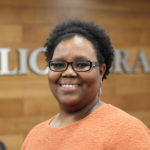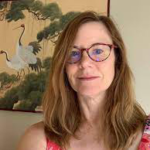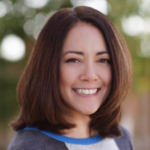Begin With a Strong Foundation: Developing a Data Plan
This webinar occurred on March 7, 2024
When embarking on data-informed work, it can be easy to jump straight to data collection, such as administering a survey to determine the effectiveness of a program or pulling a few years of ILS data to analyze eBook circulation trends. However, what if you began by taking a step back and developing a data plan that incorporates the purposes for and context of your work? In this session, you will learn how to develop a data plan by:
- Determining your priorities
- Considering Equity, Diversity, and Inclusion (EDI) implications
- Defining success
- Incorporating stakeholders’ viewpoints
You will leave this session with a greater recognition of the benefits of planning for data-informed work as well as practical tips for developing a data plan.
Webinar Handouts & Activities
- Slides
- Pebble Pond Public Library Case Study handout
- Dimensions of Success handout
- Padlet Board: Borrow a Buddy’s alignment with the library’s strategic priorities and stakeholder viewpoints
- Padlet Board: How do you determine whether a library program/service is successful?
Dimensions of Success Resources
To learn more about the dimensions of success and how to measure them, please join us for the upcoming webinar on April 16, Outcomes and Beyond: A 3-Step Approach to Evaluating Program Success.
Resources for Measuring Equity
- Webinar: What Gets Measured Gets Done (this webinar includes a section on measuring equity)
- Blog post: Equity vs. Equality: What’s the Difference?
This session is part of the 12 Months to Better Library Data Webinar Series, made possible by funding from the Mellon Foundation.
Instructors
 Katina Jones
Katina Jones
Program Manager for Evaluation and Assessment, Public Library Association
Katina Jones is the Program Manager for Evaluation and Assessment at the Public Library Association. As a member of PLA’s Data Team, she supports the division’s data and research efforts through collecting and analyzing timely library data via Project Outcome and Benchmark for use by the field in service to their communities. Prior to PLA, Katina was the Statistical Research Analyst at Mid-Continent Public Library, where she worked to support their data-driven decision making through two strategic plans and a capital improvements campaign. Ms. Jones started her library career as the State Data Coordinator at the Missouri State Library, working with the IMLS and Census Bureau to collect and distribute statistics for the state. Katina received her bachelor’s degree in Applied Psychology and Social Science from Alverno College in Milwaukee, Wisconsin.
 Zeth Lietzau
Zeth Lietzau
Director, Central, Collections, Technology, and Strategy, Denver Public Library
Zeth Lietzau is the Director of Central, Collections, Technology, and Strategy at the Denver Public Library. Previously he worked at DPL as the Manager of Digital User Experience and the Community Technology Center. He also served as Associate Director at the Library Research Service and consistently uses the skills he learned there to make data-based decisions.
 Sharon Morris
Sharon Morris
Public Library Leadership Consultant, Colorado State Library
Sharon Morris is currently serving as Public Library Leadership Consultant at the Colorado State Library. In her 30+ years in libraries and academia, Sharon has conducted focus groups, community meetings, usability testing, surveys, and needs assessments. She earned a Doctorate in Managerial Leadership in Libraries from Simmons College and holds an MLIS from Emporia State. Sharon has been an instructor for RIPL since 2015 and conducts workshops and leadership programs for libraries throughout the country.
Linda Hofschire has more than 25 years of experience conducting social science research and evaluation and providing training in-person and online. She directs the Research Institute for Public Libraries (RIPL), an initiative to provide data and evaluation training for library staff. She also works as a library evaluation and training consultant. Linda was named a Library Journal Mover & Shaker in 2017. She has an MA and PhD in Mass Media from Michigan State University, and an MLIS from the University of Illinois. She is passionate about making data accessible and meaningful to users.


